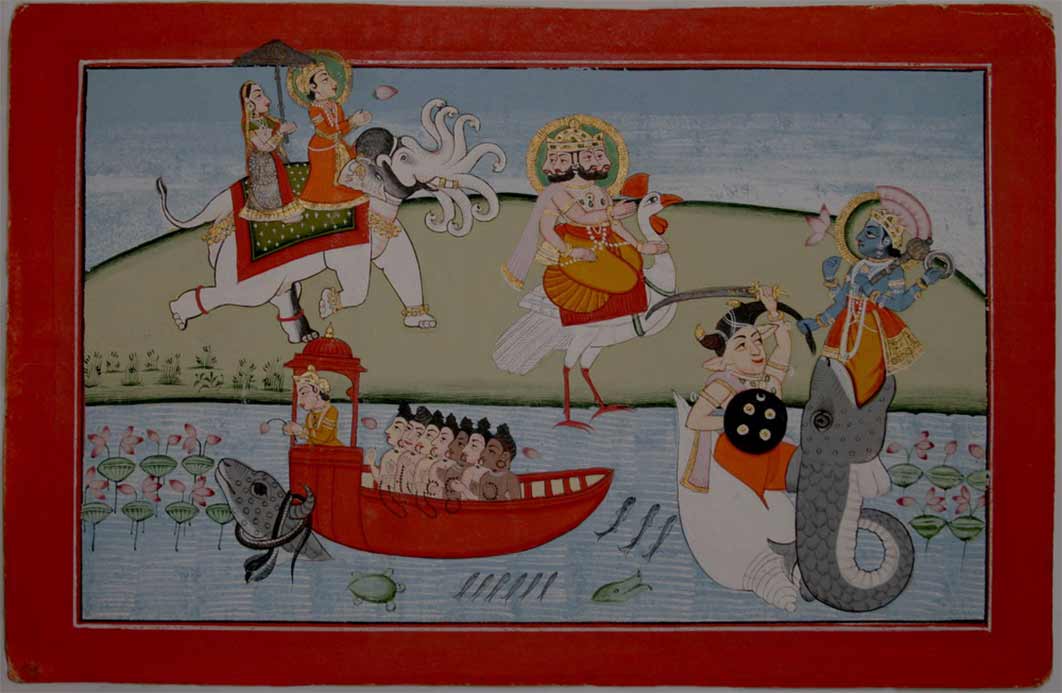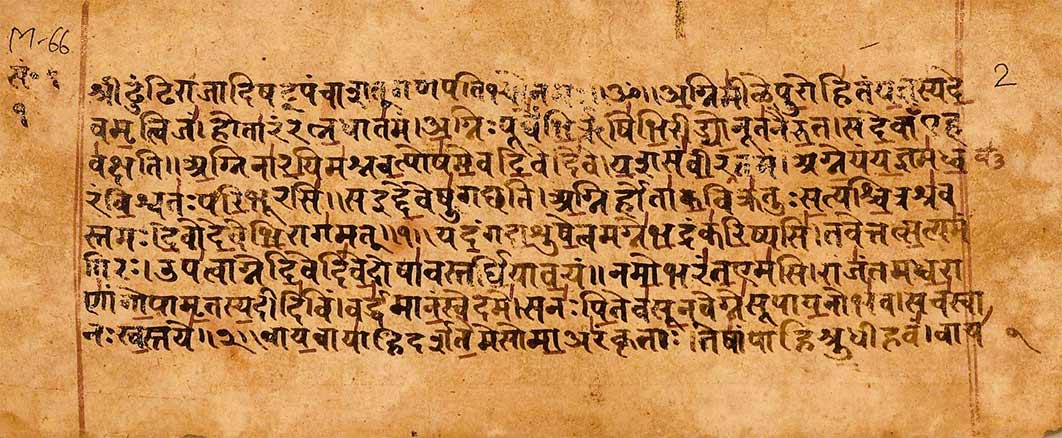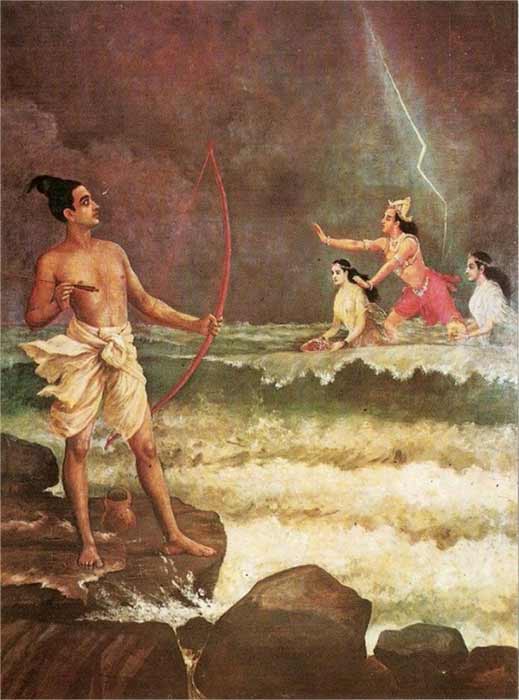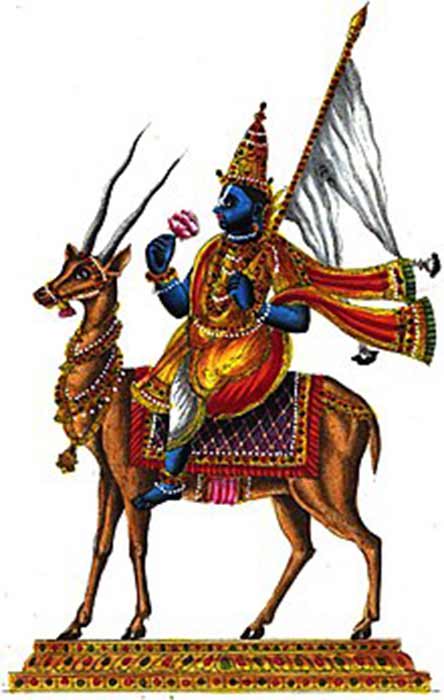
Hindu Gods And Their Counterparts: Ubiquitous In A Global Sphere
Modern Hinduism is likely the most difficult modern religious schemata in the world to define, due to its countless number of sects and influences, and its philosophical additions and interpretations. New allegorical fictions are constantly being added to the religions of India, which removes it farther from the primitive system than any other influence. Yet the religion of India still retains much of its original features, which allows it to be correlated with the religions of Egypt, Assyria, Greece, the Caspian, and Scandinavia. It has no single authoritative writings, many of its earliest writings have been all but disregarded, and it incorporates concepts from many different religions.

Rigveda manuscript page, Mandala 1, Hymn 1 (Sukta 1), lines 1.1.1 to 1.1.9 (Sanskrit, Devanagari script) (Ms Sarah Welch / CC BY-SA 4.0)
Roots Of The Rgveda
The earliest Hindu texts of the Ṛgveda date from between 1700 to 1200 BC, but many of these earliest writings are dismissed because they are misinterpreted, or because reciting the prayers do not lead to the desired or expected results. The popular worship of hero deities like Indra, Mitra, Varuna, and Nāsatyas, in the earliest hymns, has roots earlier than the 15th century BC. Some of the Ṛgveda dates even as late as the sixth century BC, since it tells about Iṣṭāśva - the Vedic version of the Greek Hystaspes, which was a pronunciation of Vishtāsp - the father of Darius the Great and the royal patron of Zoroaster; and Suśravas - who appears to be the same as Kavi Husravah of the Zoroastrian Avesta and the Persian Kai Khusrau- who is believed to be Cyrus the Great - all figures belonging to the sixth century BC. The Ṛgveda clearly correlates with events that took place in northwest India, Persia, Media, Lydia, and other surrounding areas.

Varuna, (deity of water, oceans and rain) himself arose from the depth of the ocean and begged Rama for forgiveness. (Public Domain)
In the earliest parts of the Ṛgveda praise is repeatedly being given to a list of individuals, such as Indra, Agni, Vāyu, Rudra, Varuna, Mitra, Aśvins, Viśvedevas, and Ṛitu, with Indra apparently receiving the greatest worship, as there was no one stronger than him. While these individuals are awarded extravagant praise, often with expressions usually reserved for the highest being, it is also obvious that these individuals were not quite on the same level as the creator. For instance, from Puruṣha (Sanskrit for spirit, person, self, or consciousness) all created things were formed, and because of Puruṣha the ‘Mighty Ones’ and ‘Gods of Old’ were able to attain ‘the height of heaven’.
Vāyu God of Air, Wind, and Breath (Public Domain)
Creator God Hiraṇyagarbha
Puruṣha is presented as a primordial cosmic being and shows a clear distinction from the gods who were highly esteemed but appeared later. Similar to Puruṣha, Hiraṇyagarbha is declared to be the ‘born Only Lord of all created beings’, and is said to have fixed and held up heaven and earth, similar to the Egyptian Shu, and Greek Atlas. Hiraṇyagarbha has the epitaph the ‘giver of breath’, like many primal religions refer to ‘God the Spirit’ as air, wind, or breath. He is called the God of gods, with none beside Him, which elevates Him clearly above all of the hero gods of the earlier hymns. Within the same hymn, Hiraṇyagarbha appears to be synonymously called Prajāpati, and said to be the only one with the knowledge of all created things, with none beside Him. Even though this hymn appears to be a prayer to the highest being, and gives due praise, it is also a self-nullifying prayer that beseeches God to provide the devotees’ hearts desires, and stores of riches as their possessions, simply as a reward for invoking Him. It is no wonder that many of these materialistic prayers were abandoned for their ineffectiveness.
To Be A Hero
It is clear from many of the hymns that the earliest mentioned gods were known to have appeared after the work of creation and were clearly known to be created or naturally born beings. Many of these gods are recognized as strong, wise, powerful, and as ancient heroes, identical to how the Egyptians, Akkadians, and many cultures deified their ancient leaders. Together with Vāyu, Indra is called a hero, in the very second hymn of the Ṛgveda. Generally, to be considered a hero one must show great valor in the face of danger. It is not likely for truly immortal beings to be considered heroic, since they are immune to the mortal perils of danger, while undefeated warriors are adored as heroes.






